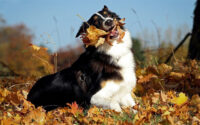Pork ok for dogs
With the increasing trend of treating our canine companions to diverse and nutritious meals, pet owners are often exploring different protein sources to enrich their dogs’ diets. Among these, pork has become a topic of interest and debate. While it’s a common ingredient in many dog foods, pork’s suitability for dogs is sometimes questioned by concerned pet parents. This article delves into the details of incorporating pork into a dog’s diet, examining its safety, nutritional value, and how to prepare it, as well as potential allergic reactions to consider before serving up this meaty treat.
Evaluating Pork in Canine Diets
Table of Contents

When considering adding pork to a dog’s diet, it’s essential to evaluate its benefits and potential drawbacks. Pork is a red meat that is relatively high in protein and can provide a variety of nutrients that are beneficial for dogs. However, it’s important to ensure that the pork is plain and cooked without harmful additives or spices that can be detrimental to a dog’s health. When fed in moderation and as part of a balanced diet, pork can be a healthy addition. Still, it’s essential to consult with a veterinarian to determine whether pork is appropriate for an individual dog’s dietary needs.
Pork for Pooches: Safe or Not?

Determining if pork is safe for your furry friend involves understanding how it’s sourced and prepared. Generally, cooked pork that is unseasoned and free from additives is safe for dogs to eat in moderation. It is crucial to avoid processed pork products like bacon and ham due to their high salt content and potential for containing harmful preservatives. Raw pork should be avoided as it poses a risk of parasitic infections such as trichinosis. By adhering to these guidelines, pork can be safely incorporated into a dog’s diet.
The Pros and Cons of Pork for Dogs

The consumption of pork by dogs comes with its own set of advantages and disadvantages:
Pros:
- High-quality protein source
- Contains essential amino acids
- Provides vitamins and minerals that contribute to a dog’s health
Cons:
- Some cuts are high in fat, which can lead to pancreatitis or obesity
- Processed pork products can contain harmful preservatives
- Potential for allergic reactions in some dogs
It’s important to weigh these factors carefully and choose the right type of pork for your dog’s diet.
Nutritional Value of Pork for Canines

Pork is a significant source of nutrients for dogs when served correctly. It contains a variety of vitamins and minerals, including B vitamins such as thiamine, niacin, riboflavin, and B6, which are crucial for energy metabolism and neurological health. Pork also provides essential amino acids and is a source of zinc and phosphorus, which support immune function and bone health, respectively. The fat content in pork, particularly in lean cuts, can also be a good source of energy for active dogs, as long as it’s not overfed.
Comparison of Pork Nutrients to Other Meats:
| Nutrient | Pork | Beef | Chicken |
|---|---|---|---|
| Protein | High | High | High |
| Fat | Moderate-High | Moderate-High | Low-Moderate |
| B Vitamins | Rich | Rich | Moderate |
| Amino Acids | Complete | Complete | Complete |
Preparing Pork for Your Dog’s Health

To safely feed pork to your dog, follow these preparation guidelines:
- Select lean cuts to minimize fat intake.
- Cook the pork thoroughly to eliminate any harmful pathogens.
- Avoid adding any seasoning, onion, garlic, or oil which can be toxic to dogs.
- Remove all bones, as cooked bones can splinter and cause internal injuries.
- Serve pork in small, manageable portions, especially if introducing it to your dog’s diet for the first time.
- Monitor your dog for any adverse reactions after consuming pork.
By taking these precautions, you can safely include pork as a part of your dog’s diet.
Pork Allergy in Dogs: What to Know

Just like humans, dogs can suffer from food allergies, and pork is a potential allergen. Symptoms of pork allergies in dogs can include itching, ear infections, and gastrointestinal upset. If you suspect your dog has a pork allergy, it’s important to:
- Consult with your veterinarian.
- Remove pork from their diet and observe for improvements.
- Consider an elimination diet to pinpoint the specific allergen.
- Seek professional advice on alternative protein sources.
- Be vigilant about checking food labels if opting for commercial dog food.
Understanding these considerations can help ensure your dog enjoys pork safely, without adverse reactions.
Pork can be a beneficial addition to a dog’s diet when carefully chosen, prepared, and served in moderation. With its high protein content and essential nutrients, pork can contribute to a well-rounded diet for canines. However, it’s vital for pet owners to be aware of the potential health risks, such as high-fat content, processed pork products, and allergies. By consulting with a veterinarian and adhering to safety guidelines, you can decide if pork is an appropriate and enjoyable option for your four-legged friend.


